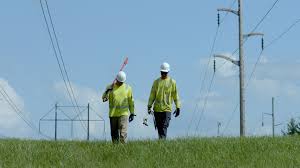CONCORD — The Society for the Protection of New Hampshire Forests filed a Notice of Appeal with the New Hampshire Supreme Court on Friday in its lawsuit against Northern Pass Transmission.
The Forest Society said the filing is part of its ongoing fight to defend conserved lands from improper private commercial use.
The appeal addresses questions that the Superior Court left unanswered in last month’s decision to grant Northern Pass a Motion summary judgment, which effectively ended the lawsuit.
“We believe strongly that the Superior Court erred by not getting to the root of the private property rights issue in its decision,” said attorney Tom Masland of Ransmeier & Spellman, representing the Forest Society. The Forest Society filed suit against Northern Pass in November 2015.
Northern Pass spokesman Martin Murray said the Superior Court ruled appropriately.
“The New Hampshire Superior Court spoke clearly and decisively on May 25th when it dismissed the Forest Society’s lawsuit that claimed that the Northern Pass project does not have the right to bury the project under public roads in the North Country,” Murray said on Saturday. He responded to questions by email.
“The Court’s summary judgment decision was based on over a century of New Hampshire law,” Murray said. “We are confident that the state Supreme Court will uphold the Superior Court’s ruling.”
The Forest Society said Northern Pass is an elective transmission project that has not been determined to be necessary and is legally prohibited from using the state’s power of eminent domain.
The Superior Court decision, issued by Coos County Superior Court Justice Lawrence MacLeod, called the Forest Society’s concerns over the proposed use by Northern Pass of the Washburn Family Forest in Clarksville “purely speculative” because a license for such use hasn’t yet been granted and declined to address whether or not such use constitutes a “taking” by eminent domain.
“The NH Department of Transportation does not have the authority to determine the property rights of landowners affected by a project like Northern Pass,” Masland said.
“By failing to address that issue now—nor allowing the issue to be litigated—landowners like the Forest Society would be left with no remedy. This is a complex case, and important issues remain unresolved, including the complexities and ramifications of declaring DOT the sole authority to resolve all matters involving the use of roads.”
The Forest Service appeal asks the Supreme Court to examine the issue of the use of the highway rights of way – where abutting owners of land own beneath the road — for elective, private, for-profit, transmission projects, not intended to “keep the lights on” in this state, and whether it is appropriate for “an extension cord” between Quebec and Southern New England. The Superior Court left this unresolved as it did not address that part of the argument, the release said.
“As a land trust, we have a legal and ethical obligation to defend conserved lands like our Washburn Family Forest from private development like Northern Pass,” said Jane Difley, president/forester of the Forest Society. “We also believe that the principles behind this case are of interest to every landowner in New Hampshire.”
The Forest Society has not opposed the Northern Pass project in concept, but called on partners Eversource and Hydro-Quebec to bury the proposed transmission line entirely. The current 192-mile proposal submitted by Eversource to the NH Site Evaluation Committee would bury less than one-third of the line and would create miles of new overhead transmission corridor through northern New Hampshire. The Forest Society is an intervenor in the SEC process.
The Forest Society’s Superior Court lawsuit can be read here.
Northern Pass’s response to the Superior Court suit is available here.
The Superior Court decision that is being appealed can be read here.





